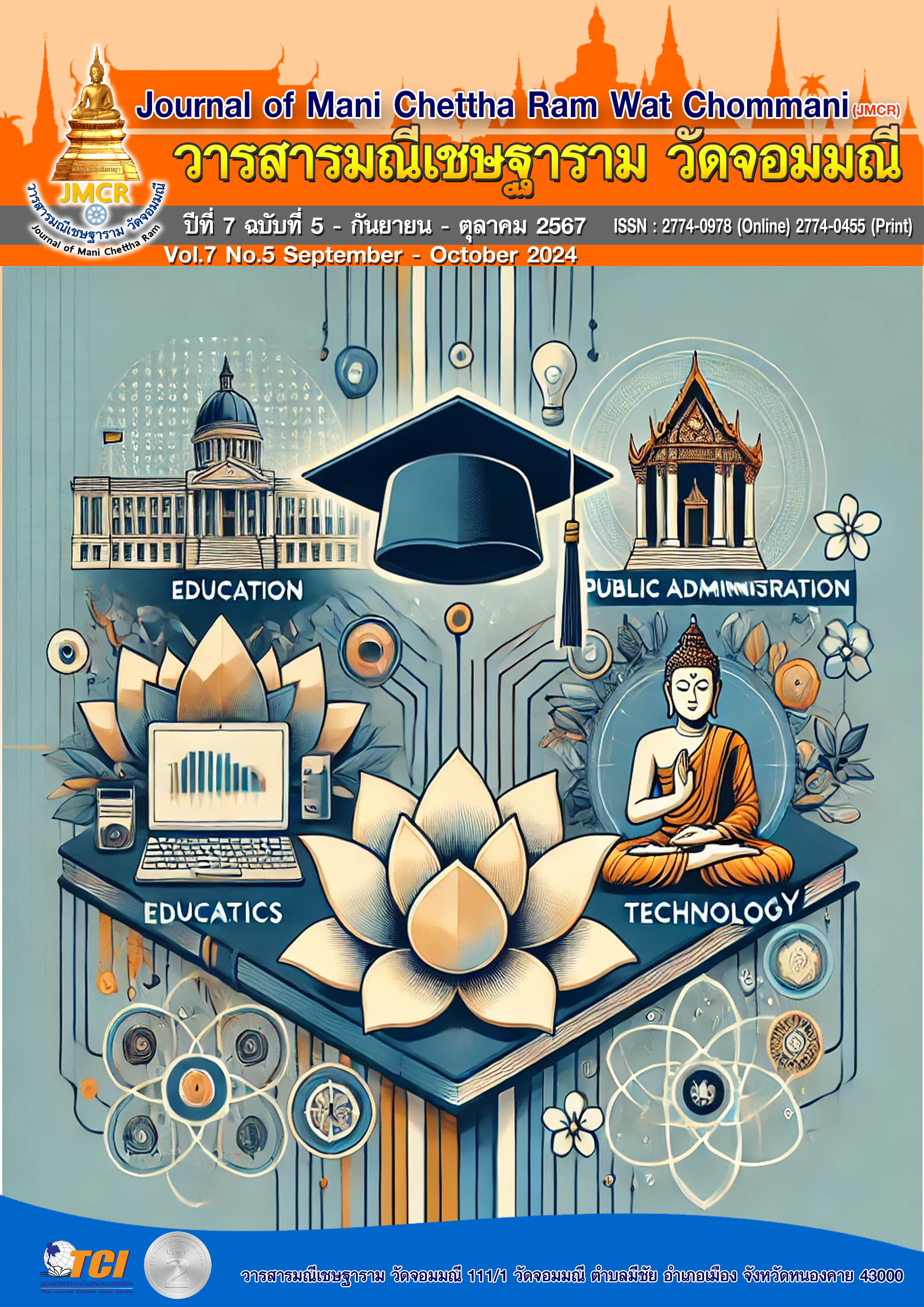APPLICATION OF THE SUFFICIENCY ECONOMY PHILOSOPHY IN EDUCATIONAL ADMINISTRATION
Keywords:
Application of the Sufficiency Economy Philosophy, Sufficiency Economy Philosophy, Educational AdministrationAbstract
This academic article on the application of the Sufficiency Economy Philosophy in educational administration aims to collect and compile concepts on the application of the Sufficiency Economy Philosophy in educational administration. Content from various reliable sources has been analyzed, reasoned, and academically summarized.
From the collection of concepts, theories and academic documents, it can be concluded that the application of the Sufficiency Economy Philosophy to educational administration can be applied in all 4 areas as follows:
1) Academic administration can be applied by planning academic work, educational supervision, educational supervision, research to develop the quality of education in educational institutions, research to develop the quality of education in educational institutions, development and promotion of learning resources, development and promotion of learning resources.
2) Budget administration can be applied by preparing an action plan for spending money, approving the spending of allocated budgets, checking, monitoring and reporting budget usage, checking, monitoring and reporting budget usage, managing educational resources. 3) Personnel administration can be applied by developing teachers and educational personnel, promoting and honoring, promoting and honoring, evaluating work performance, and promoting discipline, morality and ethics for teachers and educational personnel. And 4) General administration It can be applied by taking care of buildings, places and the environment. Taking care of buildings, places and the environment. Promoting, supporting and coordinating the management of education for individuals, communities, organizations, agencies and other social institutions that provide education. Promoting, supporting and coordinating the management of education for individuals, communities, organizations, agencies and other social institutions that provide education. And promoting student affairs. Promoting student affairs.
Which in applying the philosophy of sufficiency economy to educational administration will result in the management of educational institutions being systematic, developing both work systems, developing personnel and students to proceed in the middle path, achieving the objectives, promoting the development of the economy, society, culture, environment and the country.
References
พินิจ เครือเหลา. (2561). การบริหารสถานศึกษาตามหลักปรัชญาของเศรษฐกิจพอเพียง โรงเรียนพิทยาลงกรณ์พิทยาคม. วารสารการบริหารการศึกษา มหาวิทยาลัยศิลปากร.10(1)
มูลนิธิชัยพัฒนา. (2560). เศรษฐกิจพอเพียง. เรียกใช้เมื่อ 25 กรกฎาคม 2566 จากhttps://www.chaipat.or.th/publication/publish-document / sufficiency-economy.html
อัษฎาวุธ สุวัตถี. (2565). กลยุทธ์การบริหารสถานศึกษาตามหลักปรัชญาของเศรษฐกิจพอเพียง ของโรงเรียนประถมศึกษาในสามจังหวัดชายแดนภาคใต้. ใน วิทยานิพนธ์. มหาวิทยาลัยสงขลานครินทร์.
GotoKnow. (2555). การจัดการศึกษาตามแนวเศรษฐกิจพอเพียง. เรียกใช้เมื่อ 25 กรกฎาคม 2566 จาก https://www.gotoknow.org/posts/414168
True ปลูกปัญญา. (2555). แนวทางการนำแนวปรัชญาของเศรษฐกิจพอเพียงประยุกต์ใช้ในการบริหารการศึกษา. เรียกใช้เมื่อ 25 กรกฎาคม 2566 จากhttps://www.trueplookpanya.com/blogdiary/26537




